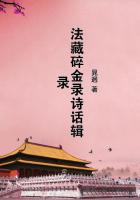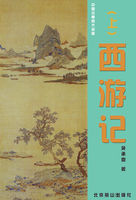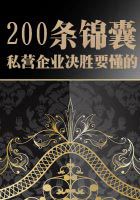A bank like that of Amsterdam, however, is of use only to such as have a current account in it. Many traders may have no account; and few or none who are not traders ever have any, though called, as well as others, to pay and to receive. To extend the advantage of assignments also to the business of such persons, those note-banks were invented which have since become so common in all parts of Europe. Their notes are assignments on the bank, payable to the bearer on demand. Each, by combining several notes, may make his odd payments himself; and hence it is generally most convenient for him to transmit them to others, as he received them, without having drawn any money; and even though each may require payment at his pleasure, no one thinks of it, just because each feeling that he may do it any time, feels always that it will be soon enough afterwards.
Up to that period, banks had done nothing but simplify payments, and save the employment of money, and render circulation easy with a smaller sum than would otherwise have been required. But some one must profit by this saving. In arranging the assignments at Lyons, each profited according to his share in trade; each needed to have money in his coffers only four times yearly, for three days. He, of course, gained interest for the remaining 353 days; and as those assignments simplified all his operations, a smaller sum performed for him the office of a greater. When banks were established, it was they that profited by this saving of money. They received interest, not for the money really given by them, but for the money, which every bearer of notes had it in his power to demand from them, at a moment's notice. This interest of notes, reckoned equal to gold, was a pure advantage for bankers; since the money promised, far from being drawn, had not even remained at the bank, where it would have been barren. Bankers, reckoning on the confidence of the public, had caused it to labour, and recalled it for their payments only as they needed it.
It was by discount on such of the proceeds of trade as were payable at long dates, that banks pushed their notes into circulation. They required an interest for exchanging their paper against that of trade, because theirs was exigible at sight, though it was not really paid before the other. The discount required by the bank served to introduce the interest of money, and to regulate it in the place. Bankers, in virtue of their credit alone, seemed to have capitals of almost immense extent, to offer in the service of merchants. Credit soon appeared to have a creative power, and speculators, persuaded that by emitting a bank one, they added as much to the public wealth as by importing an equal sum of money, delivered their minds to dreams dangerous for themselves, and for the states that gave ear to them. They proposed the establishment of banks to multiply the funds of trade, to provide for the enterprises of agriculture, to set labour every where in motion, to increase the general capital; and redouble the activity of industry.
Governments, on their side, imagined that in banks they had found an open mine, from which they might draw at discretion. At each new season of need, they stuck new bank-notes. But they soon perceived, with astonishment, that notes were no longer received with the same confidence, and were speedily carried back to the bank for payment; and next, as their custom generally is, they substituted their authority for the nature of things. They refused payment on demand, but they ordered each citizen to receive as ready coin, those notes which had thus become paper money; and they authorised every debtor to pay his accounts with it.
The circulation of paper money became, in a short time, nothing less than a general bankruptcy. Notwithstanding all the orders of government, paper fell every day in its proportion to silver or to goods. The bearers of it, feeling that they had no pledge for the values, the sign of which they were always presenting, dreaded lest the paper should undergo a new deterioration in their hands, and made haste to get rid of it.
Each lost and caused loss, each having no longer any common measure of value, became unable to distinguish the gain from the loss of his bargain, and always selling with advantage, he ended in ruin. During this time, coin disappeared, goods themselves were exported from the country, without giving any return; and the expedient, which promised to create immense wealth, produced nothing but ruin and confusion.















